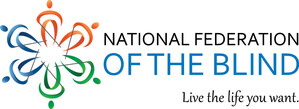Federal Appeals Court Upholds Blind Woman's Right to Use Technology to Take Professional Examinations
National Federation of the Blind Applauds Ruling
BALTIMORE, Jan. 5, 2011 /PRNewswire-USNewswire/ -- The National Federation of the Blind (NFB), the oldest and largest nationwide organization of blind people, today applauded a federal appellate court ruling affirming the right of a blind California woman to use screen access technology to take professional examinations required for her to receive a license to practice law. The ruling, handed down yesterday by a unanimous three-judge panel of the United States Court of Appeals for the Ninth Judicial Circuit, upheld preliminary injunctions granted by a federal district court requiring the National Conference of Bar Examiners (NCBE) to provide electronic copies of its legal examinations to Stephanie Enyart so that she could read the questions with text-to-speech and magnification software. The NCBE had appealed the injunctions, arguing that the law did not require it to provide electronic copies of the examinations and that Enyart must choose from the menu of accommodations it was willing to provide.
Marc Maurer, President of the National Federation of the Blind, said: "The National Federation of the Blind welcomes this ruling, which means that testing agencies must afford the accommodations and auxiliary aids that are most likely to level the playing field for the blind and other test takers with disabilities. The court made it clear that law and equity simply do not permit the NCBE to dictate a one-size-fits-all solution for all bar candidates with disabilities. The ruling stands solidly for the principle that the NCBE and all testing organizations must consider the individual needs of each examination candidate and that accommodation policies must change as access technology continues to improve. It is our sincere hope that the NCBE will change its rigid and outdated accommodation policies to reflect the letter and spirit of this ruling, and that other entities that administer educational and professional examinations will take note and do likewise. The National Federation of the Blind stands ready to fight for the rights of blind students and aspiring professionals and to make sure that this ruling is faithfully followed."
According to the ruling, Ms. Enyart established that screen reader software, which speaks text on the screen out loud and/or magnifies it visually, is her primary reading method and the way she took most of her law school examinations. The court upheld the validity of a Department of Justice regulation, promulgated pursuant to Title III of the Americans with Disabilities Act (ADA), requiring that "the examination is selected and administered so as to best ensure that when the examination is administered to an individual with a disability . . . the examination results accurately reflect the individual's aptitude or achievement level . . . rather than reflecting the individual's [disability]."
The judges rejected the argument of the NCBE that the court should invalidate the regulation and rule that NCBE need only provide a reasonable accommodation, pointing out that "reasonable accommodation" is not any part of Title III of the ADA, which applies to testing entities, but is only a concept applicable to Title I of the same law, relating to employment. While the court acknowledged that Ms. Enyart had taken prior examinations with a human reader, it ruled that this prior history was relevant, but not conclusive, and added: "Moreover, assistive technology is not frozen in time: as technology advances, testing accommodations should advance as well."
The court concluded that denying a preliminary injunction would have likely caused Ms. Enyart irreparable harm because having to take the examinations under discriminatory conditions would likely cause her to fail and therefore to lose the chance to pursue her chosen profession. Even a delay in her career, the court said, is "productive time irretrievably lost."
The plaintiff is represented with the support of the National Federation of the Blind by Scott C. LaBarre of LaBarre Law Offices, P.C., of Denver, Colorado; Daniel F. Goldstein of Brown, Goldstein & Levy, LLP, of Baltimore, Maryland; and Larry Paradis of Disability Rights Advocates of Berkeley, California.
About the National Federation of the Blind
With more than 50,000 members, the National Federation of the Blind is the largest and most influential membership organization of blind people in the United States. The NFB improves blind people's lives through advocacy, education, research, technology, and programs encouraging independence and self-confidence. It is the leading force in the blindness field today and the voice of the nation's blind. In January 2004 the NFB opened the National Federation of the Blind Jernigan Institute, the first research and training center in the United States for the blind led by the blind.
SOURCE National Federation of the Blind
WANT YOUR COMPANY'S NEWS FEATURED ON PRNEWSWIRE.COM?
Newsrooms &
Influencers
Digital Media
Outlets
Journalists
Opted In





Share this article